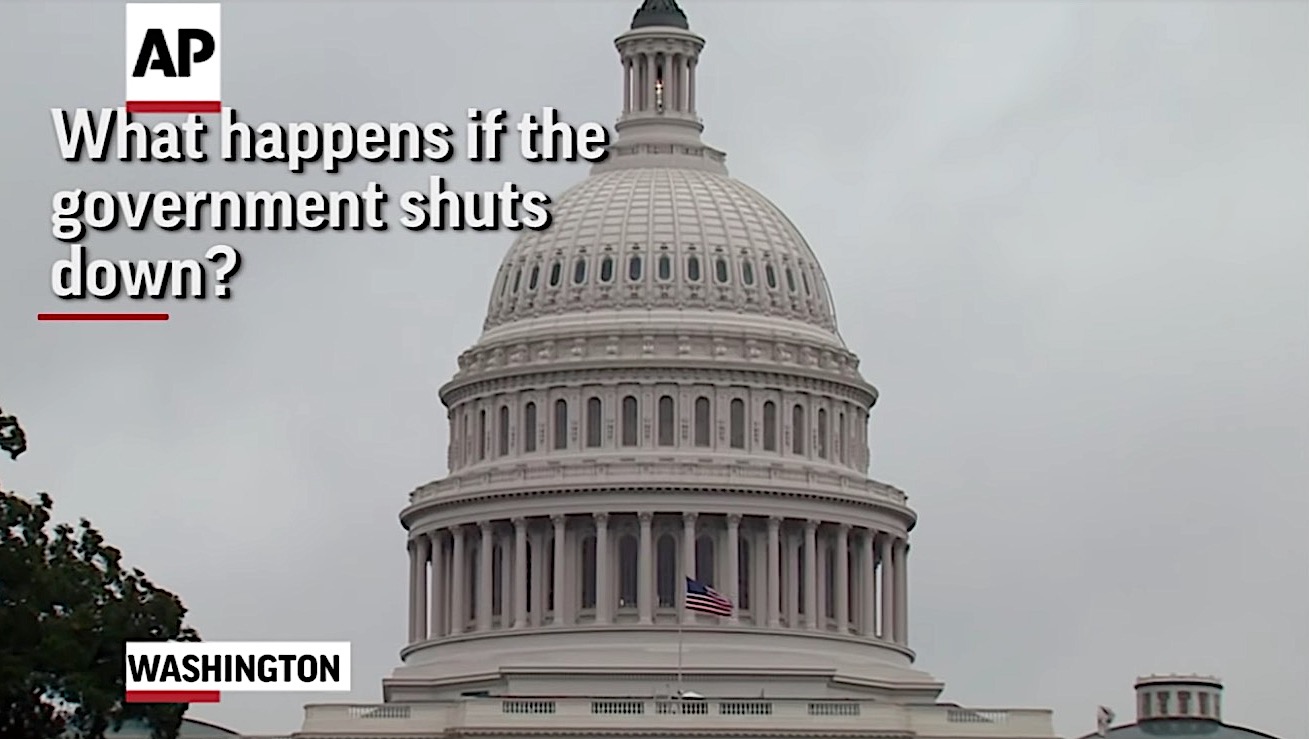Here's what would, and wouldn't, happen during a government shutdown


If Congress doesn't pass a spending bill by midnight Friday, the federal government will start shutting down Saturday, with most of the impact starting Monday. About 850,000 federal workers would be sent home without pay, or furloughed, though employees deemed "essential" would stay on the job without pay (in the last shutdown, Congress paid all federal employees retroactively). A shutdown wouldn't be pretty, especially if it lasted for more than a few days, and it would cost the government in ways big and small.

Things that wouldn't change: The U.S. Postal Service would deliver mail as normal, Social Security and Medicare would be unaffected, veterans would still get health care, and air traffic controllers, Forest Service firefighters, and FDA food safety inspectors would stay on the job. And "it's a stretch, at best, to think the military would bear the brunt of a partial government shutdown," as President Trump and other Republican leaders have argued, The Associated Press says. "All military members would be required to report for work as usual. Paychecks would be delayed only if the shutdown lasted beyond Feb. 1." The White House also wants to keep national parks and memorials open.
But the 850,000 employees not working will stall activities at most federal agencies, and that will cause some havoc. Most intelligence analysts would be furloughed, AP says, and 61 percent of the Centers for Disease Control and Prevention would be sent home during a bad flu season. The IRS would likely furlough thousands of employees as it tries to implement the new GOP tax law, and biomedical and public health research at the National Institutes of Health would grind to a halt, adversely affecting some projects. "Day 1, the world doesn't fall apart," J. David Cox, national president of the American Federation of Government Employees, tells AP. But "things start to crumble" over time.
The Week
Escape your echo chamber. Get the facts behind the news, plus analysis from multiple perspectives.

Sign up for The Week's Free Newsletters
From our morning news briefing to a weekly Good News Newsletter, get the best of The Week delivered directly to your inbox.
From our morning news briefing to a weekly Good News Newsletter, get the best of The Week delivered directly to your inbox.
A free daily email with the biggest news stories of the day – and the best features from TheWeek.com
Peter has worked as a news and culture writer and editor at The Week since the site's launch in 2008. He covers politics, world affairs, religion and cultural currents. His journalism career began as a copy editor at a financial newswire and has included editorial positions at The New York Times Magazine, Facts on File, and Oregon State University.
-
 Metal-based compounds may be the future of antibiotics
Metal-based compounds may be the future of antibioticsUnder the radar Robots can help develop them
-
 Europe’s apples are peppered with toxic pesticides
Europe’s apples are peppered with toxic pesticidesUnder the Radar Campaign groups say existing EU regulations don’t account for risk of ‘cocktail effect’
-
 Political cartoons for February 1
Political cartoons for February 1Cartoons Sunday's political cartoons include Tom Homan's offer, the Fox News filter, and more
-
 Trump sues IRS for $10B over tax record leaks
Trump sues IRS for $10B over tax record leaksSpeed Read The president is claiming ‘reputational and financial harm’ from leaks of his tax information between 2018 and 2020
-
 Trump, Senate Democrats reach DHS funding deal
Trump, Senate Democrats reach DHS funding dealSpeed Read The deal will fund most of the government through September and the Department of Homeland Security for two weeks
-
 Fed holds rates steady, bucking Trump pressure
Fed holds rates steady, bucking Trump pressureSpeed Read The Federal Reserve voted to keep its benchmark interest rate unchanged
-
 Judge slams ICE violations amid growing backlash
Judge slams ICE violations amid growing backlashSpeed Read ‘ICE is not a law unto itself,’ said a federal judge after the agency violated at least 96 court orders
-
 Rep. Ilhan Omar attacked with unknown liquid
Rep. Ilhan Omar attacked with unknown liquidSpeed Read This ‘small agitator isn’t going to intimidate me from doing my work’
-
 Democrats pledge Noem impeachment if not fired
Democrats pledge Noem impeachment if not firedSpeed Read Trump is publicly defending the Homeland Security secretary
-
 The billionaires’ wealth tax: a catastrophe for California?
The billionaires’ wealth tax: a catastrophe for California?Talking Point Peter Thiel and Larry Page preparing to change state residency
-
 Hegseth moves to demote Sen. Kelly over video
Hegseth moves to demote Sen. Kelly over videospeed read Retired Navy fighter pilot Mark Kelly appeared in a video reminding military service members that they can ‘refuse illegal orders’
